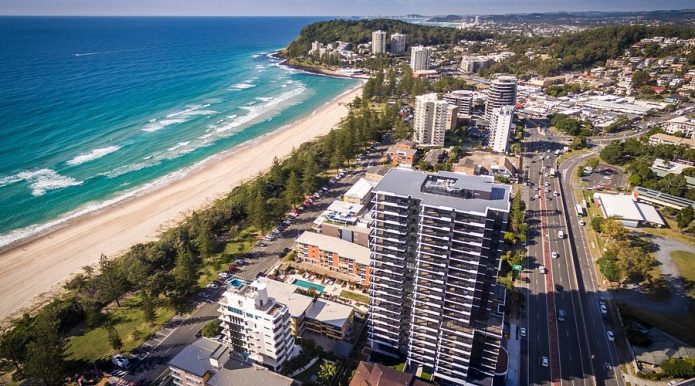PHOTO: Hayley Holt. 1NEWS
The list of Kiwis moving back in with their parents is growing—and it now includes a familiar face: former TVNZ Breakfast host and sports presenter Hayley Holt.
Holt recently revealed that she and her young family are moving in with her parents to weather the ongoing cost-of-living storm sweeping New Zealand. Speaking on The House of Wellness radio show, she didn’t mince words: “It’s tough out there at the moment. My partner’s in construction, so it’s tough for him too. So we are having to pack up and move into my parents’ house with the kids. So thank you so much, Mum and Dad!”
Holt and her partner plan to rent out their Warkworth home to relieve financial pressure—a move that echoes the wider struggle many New Zealanders are facing.
A Nation of Returning Children
Holt is far from alone. Stats NZ data shows that between 2013 and 2023, the number of people aged 20–34 living with their parents rose by almost 34%, now exceeding 200,000 adults nationwide. In 2023, more than one-third of all families with children had at least one adult child living at home—a 27% increase in just a decade.
The reality is stark: high rents, eye-watering property prices, and stagnant wages are forcing adult children to return home or delay moving out at all.
Why Are Adults Returning Home?
According to economist Shamubeel Eaqub, the answer is simple: “Housing is expensive. Rent is expensive.” He says many adult children are returning home simply to save for a deposit on their first house—an increasingly unreachable goal for many without family help.
Paul Spoonley, sociologist and author of The New New Zealand: Facing Demographic Disruption, agrees. “A generation that previously would have left home in their late teens… is now staying in the family home until their mid and possibly late 20s.”
This is part of a global shift. In Europe, it’s been happening for over a decade. Italians even coined a term for it: bamboccioni—or “big babies.” New Zealand, long a bastion of independence and flatting culture, is now catching up.
The New Household Norm
The economic squeeze doesn’t just impact those in their 20s. People in their 30s, and even those with families like Hayley Holt, are moving back home to make ends meet.
Journalist Nile Bijoux, 31, also moved back in with his mum last year to save for a move to the UK. With five people in the house—including his girlfriend and brother—he was surprised by how smoothly things have gone. More importantly, the move supercharged his savings: “I’m saving about $800 a week, compared to the $100 I managed when I was paying rent and bills.”
His story isn’t unique. Across nearly every region in New Zealand, the number of adult children living at home has climbed significantly over the past decade.
Not Just an Auckland Story
While cities like Auckland feel the brunt of housing unaffordability, this trend is nationwide. From Northland to Southland, Stats NZ figures show a rise in multigenerational living in every region between 2013 and 2023.
This trend is also being shaped by New Zealand’s increasingly diverse cultural fabric. In many Pacific and Asian communities, multigenerational homes are the norm, and that acceptance is influencing broader social expectations.
What Comes Next?
For now, moving home is the only viable option for many adults feeling the squeeze. Whether it’s to save for a home, reset after a relationship breakdown, or simply ride out the rising cost of living, this trend is only expected to grow.
Hayley Holt’s decision to move in with her parents isn’t a retreat—it’s a reflection of a growing reality for thousands of New Zealanders trying to navigate an increasingly hostile economic landscape.
SOURCE: STUFF









